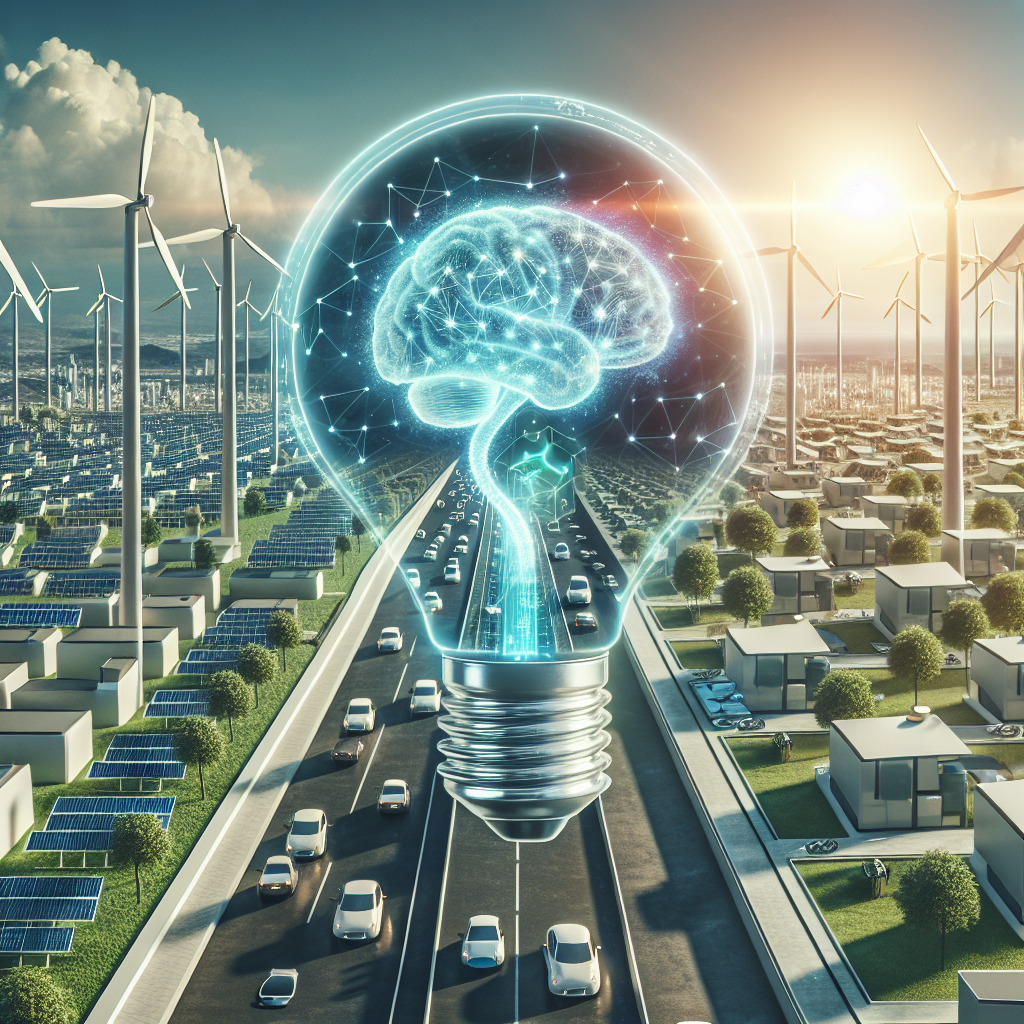The Future of Sustainable Energy: AI and Renewable Resources
As the world continues to grapple with the effects of climate change, the importance of transitioning to sustainable energy sources has never been more crucial. Renewable resources such as solar, wind, and hydroelectric power have become increasingly popular in recent years as a way to reduce greenhouse gas emissions and combat global warming. However, the integration of artificial intelligence (AI) into renewable energy systems has the potential to revolutionize the way we generate and utilize clean energy in the future.
AI technology has already been successfully implemented in various industries to improve efficiency, optimize operations, and reduce costs. In the renewable energy sector, AI can play a key role in increasing the reliability and performance of renewable energy systems, as well as enabling the integration of renewable resources into the existing energy grid.
One of the key advantages of AI in renewable energy is its ability to optimize energy production and consumption in real-time. By analyzing vast amounts of data from sensors, weather forecasts, and energy usage patterns, AI algorithms can predict energy demand and supply fluctuations, and adjust renewable energy production accordingly. This can help reduce energy waste, improve grid stability, and lower electricity costs for consumers.
AI can also enhance the efficiency of renewable energy systems by optimizing the operation of wind turbines, solar panels, and other renewable energy technologies. For example, AI algorithms can adjust the angle of solar panels to maximize sunlight exposure, or control the pitch of wind turbine blades to capture more wind energy. These optimizations can significantly increase the energy output of renewable systems, making them more cost-effective and competitive with traditional fossil fuel sources.
Furthermore, AI can enable the integration of renewable resources into the existing energy grid by providing real-time monitoring and control of energy flows. By analyzing grid data and predicting energy demand, AI algorithms can help utilities manage the variability of renewable energy sources, such as solar and wind power, and ensure a stable and reliable energy supply for consumers.
In addition to improving the efficiency and reliability of renewable energy systems, AI can also accelerate the development of new clean energy technologies. By analyzing scientific data, simulating complex processes, and identifying patterns in research, AI algorithms can help researchers design more efficient solar panels, develop advanced energy storage systems, and optimize the performance of renewable energy technologies.
Overall, the integration of AI into renewable energy systems has the potential to transform the energy landscape and accelerate the transition to a sustainable future. By harnessing the power of AI to optimize energy production, improve grid stability, and drive innovation in clean energy technologies, we can reduce our reliance on fossil fuels, mitigate the impacts of climate change, and create a more sustainable and resilient energy system for future generations.
FAQs:
Q: How is AI used in renewable energy?
A: AI is used in renewable energy to optimize energy production and consumption, improve the efficiency of renewable energy systems, enable the integration of renewable resources into the existing energy grid, and accelerate the development of new clean energy technologies.
Q: What are the benefits of using AI in renewable energy?
A: The benefits of using AI in renewable energy include increased energy production and efficiency, reduced energy waste, improved grid stability, lower electricity costs for consumers, and accelerated innovation in clean energy technologies.
Q: How does AI optimize energy production in renewable energy systems?
A: AI optimizes energy production in renewable energy systems by analyzing data from sensors, weather forecasts, and energy usage patterns to predict energy demand and supply fluctuations, and adjust renewable energy production accordingly.
Q: How does AI improve the efficiency of renewable energy systems?
A: AI improves the efficiency of renewable energy systems by optimizing the operation of wind turbines, solar panels, and other renewable energy technologies to maximize energy output and reduce costs.
Q: How does AI enable the integration of renewable resources into the energy grid?
A: AI enables the integration of renewable resources into the energy grid by providing real-time monitoring and control of energy flows, analyzing grid data, and predicting energy demand to ensure a stable and reliable energy supply for consumers.

